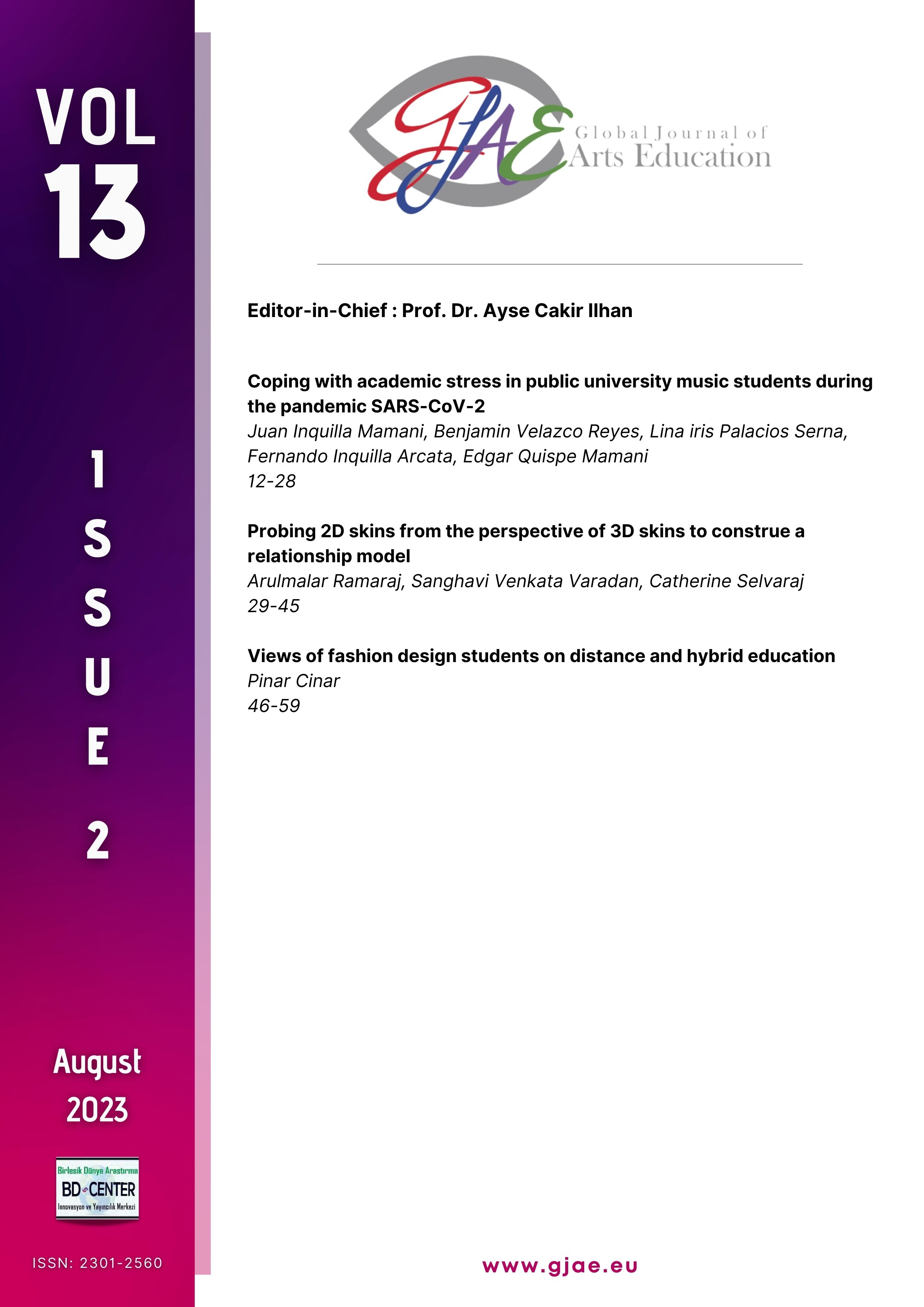Views of fashion design students on distance and hybrid education
Main Article Content
Abstract
As a result of the Coronavirus epidemic, which started to appear in the first months of 2020 and gradually affected the whole world, and the earthquake disaster that occurred in Turkiye on February 6, 2023, centered in Kahramanmaraş and affecting 10 provinces, the distance education process was started in education levels. It was decided that education in higher education institutions will be carried out by distance education method in the 2023 Academic Year Spring Term, and then, as of April 3, 2023, it will be processed as Hybrid, which is a mixed education model in which the traditional education method is enriched with online education materials. At this point, it is considered important to investigate how efficient the newly implemented distance and hybrid education method is for students. This study aims to reveal the opinions of students studying Fashion Design about the distance and hybrid education process at the level of knowledge and skills. The study group of the research consisted of students studying in the Fashion Design Program of Sakarya University of Applied Sciences Design Department in the spring semester of the 2022-2023 academic year. Research data was collected with a survey measurement tool created by the researcher. The content analysis method was used to analyze the research data. The research topic is important and will contribute to the field as it will bring suggestions to make the distance education process in Fashion Design education more effective.
Keywords: Distance education; fashion design; hybrid education.
Downloads
Article Details
Authors who publish with this journal agree to the following terms:
- Authors retain copyright and grant the journal right of first publication with the work simultaneously licensed under a Creative Commons Attribution License that allows others to share the work with an acknowledgement of the work's authorship and initial publication in this journal.
- Authors are able to enter into separate, additional contractual arrangements for the non-exclusive distribution of the journal's published version of the work (e.g., post it to an institutional repository or publish it in a book), with an acknowledgement of its initial publication in this journal.
- Authors are permitted and encouraged to post their work online (e.g., in institutional repositories or on their website) prior to and during the submission process, as it can lead to productive exchanges, as well as earlier and greater citation of published work (See The Effect of Open Access).

